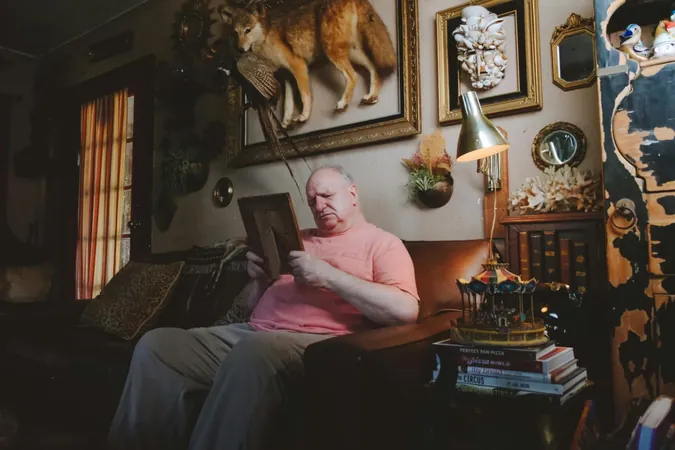
The Frustrating and Disturbing Reality of Our Family's Alzheimer's Journey
2024-09-25
Understanding Alzheimer's Disease
Alzheimer’s disease doesn’t come with happy endings.
Our Family's Journey
In recent months, I have been sharing my family’s challenging journey with Alzheimer’s in hopes of connecting with others facing similar struggles. My brother-in-law is currently navigating the middle to later stages of this devastating illness, a phase where difficult decisions about care begin to arise.
Caregiving Challenges
According to the Alzheimer Society of Canada, caregivers must start considering options for at-home help or long-term care once the disease progresses. Patients experience a myriad of issues beyond memory loss and confusion, including significant challenges with communication, hygiene, and basic daily activities like eating and sleeping.
The Caregiving Experience
In sharing our story, I want to emphasize that my critiques are not directed toward the dedicated workers in this field, who are clearly overworked and under-resourced. However, the experience for families can often be disheartening and exhausting. Each step requires numerous assessments to determine the level of government-funded assistance available, leading to an endless cycle of phone calls and appointments.
Seeking Support
Recently, a representative from Ontario Health At Home evaluated our situation and concluded that my sister was eligible for a personal support worker twice a week for just three hours each visit. While we are grateful for any support, those three hours barely allow enough time for my sister to manage grocery shopping, attend appointments, or even take a rest.
Caregiver Experiences
Our first caregiver fell short of our expectations. He came into the house, spent more time talking about himself than providing any assistance, and neglected to supervise the patient adequately. This resulted in a flooded kitchen, as my brother-in-law wandered off unsupervised. It left us questioning how safe a home could be under the watch of someone who seemed to need supervision himself.
We then hired a female personal support worker who, while slightly more attentive, still spent the majority of her time parked in front of the TV with my brother-in-law rather than engaging with him. In addition, we discovered there were restrictions preventing caregivers from taking clients outside, which felt incredibly limiting.
Both workers indicated they were sometimes able to leave early if we requested it, which raised further concerns about the adequacy of care being provided.
Finding Creative Solutions
To enhance our situation, we've sought help from professionals at the Alzheimer Society, who have offered valuable ideas for keeping my brother-in-law's mind active through various activities. We've found that dollar stores stock affordable arts and crafts supplies that can be repurposed, allowing us to spend quality time together. More often than not, I found myself coloring, yet it was a joyful shared experience despite the circumstances.
The Long-Term Care Struggle
We’re still on the waiting list for long-term care, a process fraught with unknowns and frustrations that can stretch for months. For those who haven’t experienced this, let me assure you—it's a torturous ordeal. Patients with dementia typically cannot be housed in regular nursing homes; they require specialized, secure environments to ensure their safety as well as the safety of others. Unfortunately, such facilities are exceedingly rare.
A Daunting Reality
As we seek placement for my brother-in-law, we are confronted with an increasingly daunting set of questions from potential homes, each one revealing the severity of his needs and the corresponding rising costs. At one facility, we found ourselves potentially facing a monthly fee of $5,000 only to hear that he was deemed too far along for their resources.
With every passing day, we anxiously await the call from a facility that may have a room available. This is a moment that we dread—facing a decision of immeasurable weight: Can we leave him with strangers? Will he understand what we’ve done? Would we be able to live with ourselves afterward?
Yet, if we decline that offer, we risk losing our place in line, putting our family in an even more precarious situation when care becomes unbearable.
Seeking Light in the Dark
There are no happy endings here, only endless questions, little hope, and a heavy heart.
Despite the overwhelming challenges, I want to acknowledge the remarkable compassion displayed by every caregiver we've encountered. Even those who fell short of our expectations did so with an underlying kindness and concern. For that, we are grateful. It's a small light in an otherwise ominous journey—a reminder that kindness exists even in the darkest of circumstances.









 Brasil (PT)
Brasil (PT)
 Canada (EN)
Canada (EN)
 Chile (ES)
Chile (ES)
 España (ES)
España (ES)
 France (FR)
France (FR)
 Hong Kong (EN)
Hong Kong (EN)
 Italia (IT)
Italia (IT)
 日本 (JA)
日本 (JA)
 Magyarország (HU)
Magyarország (HU)
 Norge (NO)
Norge (NO)
 Polska (PL)
Polska (PL)
 Schweiz (DE)
Schweiz (DE)
 Singapore (EN)
Singapore (EN)
 Sverige (SV)
Sverige (SV)
 Suomi (FI)
Suomi (FI)
 Türkiye (TR)
Türkiye (TR)